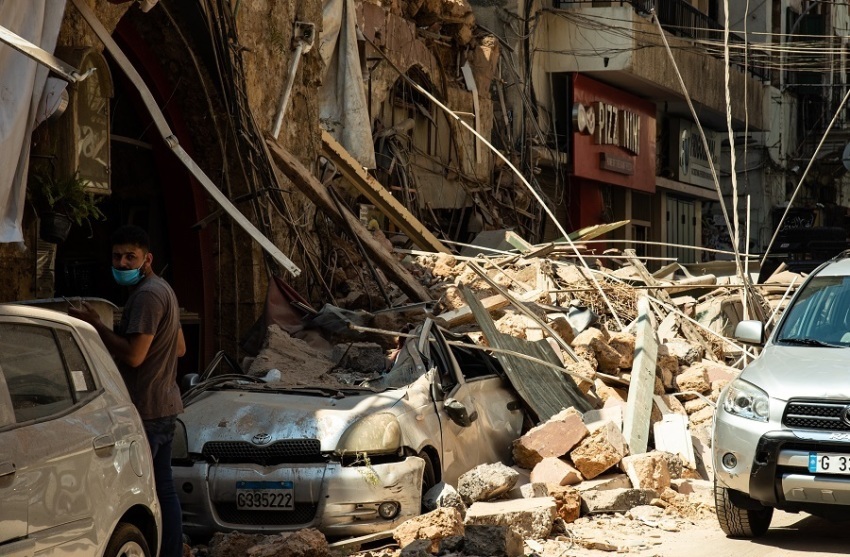World Vision-Lebanon director talks impact of Beirut explosion: 'Everything is shattered'

The blast in Beirut that killed some 150 people and injured over 5,000 has exacerbated preexisting economic conditions and reignited for many the trauma of Lebanon’s 15-year civil war.
Rami Shamma, field operations director for World Vision-Lebanon, felt the blast in a “public place” about 30 kilometers from Beirut. He told The Christian Post that it reminded people of the war, but without a political reason to blame.
“Part of the port that was destroyed was the same part destroyed in the Lebanese civil war,” Shamma said. “Everything we see took us back 15 years to what took place ... We don’t have bullets in the buildings, but everything is shattered and on the ground. The images were terrifying.”
Beirut, a port city crucial to the economy and well-being of the country, saw hundreds of tons of ammonium nitrate become a deadly, powerful force on Tuesday. The cause of the blast was either negligence or "external action, with a missile or a bomb," Lebanese President Michel Aoun said Friday.
The agony is widespread, as the blast acts as only the latest detriment to the country this year, according to Shamma.
Due to the port’s destruction, Lebanese people will face a higher cost on goods due to a lack of imports. The Lebanese pound has rapidly decreased in value ($0.0007 USD) and a lack of opportunities in the country already had many in poverty before the blast.
Syrian refugees will be hit the hardest, according to Hans Bederski, World Vision’s national director in Lebanon.
“Everyone living in and around Beirut is affected,” says Bederski. “The port was the main point of entry for imported goods and supplies. Its destruction will have an immediate impact on cost of living for all people residing in Lebanon. Of course, the most vulnerable, including the refugee population, will get to feel more severely the increases in cost of produce.”
Hospitals, already stressed by COVID-19 patients, have been overrun after the blast, according to Shamma. Injured people who go to the hospitals that are “already weak” experience long wait times. Four hospitals were also heavily damaged from the blast, causing capacity issues.
World Vision is assisting Lebanese people affected by the blast in various ways. Shamma said that basic needs such as food, water and shelter are the primary needs and focus in Lebanon, but emotional healthcare is also provided, which is crucial for Lebanese children.
“They have either experienced it or seen it. People are talking about it, yelling about it, crying about it,” he said. “The trauma is stacked up and thus we support in psychological first aid and guiding parents for children living through this difficult time.”
Shamma mentioned a point of positivity though. He said right after the blast, he saw people in the streets with brooms and cleaning supplies, working together to clean up the now-destroyed city. Hospitals were filled with citizens donating blood within minutes of the blast.
Seeing this type of togetherness and hope is why he is able to continue the strenuous work of a humanitarian.
“The solidarity that we see ... it’s so powerful that it brings hope to people who have lost somebody or who have terribly seen their city collapsing and being destroyed,” he said.
Anyone can assist the Lebanese people through online donations to World Vision-Lebanon, The Lebanese Red Cross, Save the Children-Lebanon and other organizations.



























